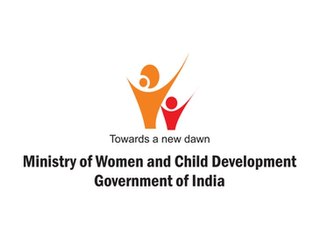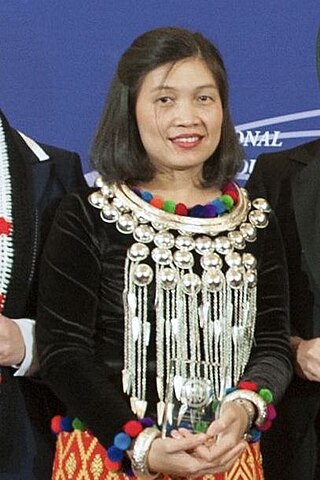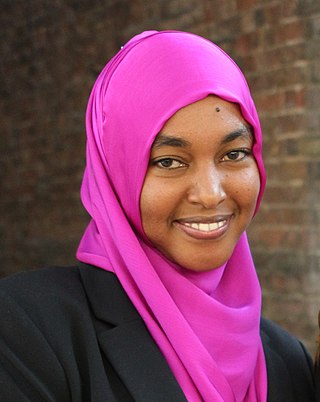United Nations Security Council Resolution 1325 (S/RES/1325), on women, peace, and security, was adopted unanimously by the UN Security Council on 31 October 2000, after recalling resolutions 1261 (1999), 1265 (1999), 1296 (2000), and 1314 (2000). The resolution acknowledged the disproportionate and unique impact of armed conflict on women and girls. It calls for the adoption of a gender perspective to consider the special needs of women and girls during conflict, repatriation and resettlement, rehabilitation, reintegration, and post-conflict reconstruction.

Education in the State of Palestine refers to the educational system in the Gaza Strip and the West Bank, which is administered by the Palestinian Ministry of Education and Higher Education. Enrollment rates amongst Palestinians are relatively high by regional and global standards. According to a youth survey in 2003, 60% between the ages 10–24 indicated that education was their first priority. Youth literacy rate was 98.2%, while the national literacy rate was 91.1% in 2006. The literacy rate ages 15-24 was 99.4% in 2016. Enrollment ratios for higher education were 45% in 2022. In 2016 Hanan Al Hroub was awarded the Varkey Foundation Global Teacher Prize for her work in teaching children how to cope with violence.
The Agoro Community Development Association (ACDA) is a Non-governmental organization (NGO) that assists the rural Agoro community in northern Uganda’s Lamwo and Kitgum districts. These districts have a religiously and culturally diverse population of over 600,000, most of whom are Acholi. Post Ugandan Independence in 1962 the area has suffered almost continual conflict, persecution & neglect, much of it based on ethnic tensions. Socio-culturally, there has traditionally been deep gender inequality and power imbalance between men and women. Sexual violence, child marriage and lack of respect for property rights against girls and women remain a prevalent, but silent, crime.

Homosexuality in the Palestinian territories is considered a taboo subject; lesbian, gay, bisexual, and transgender (LGBT) people experience persecution and violence. There is a significant legal divide between the West Bank and the Gaza Strip, with the former having more progressive laws and the latter having more conservative laws. Shortly after the Jordanian annexation of the West Bank in 1950, same-sex acts were decriminalized across the territory with the adoption of the Jordanian Penal Code of 1951. In the Egyptian-occupied Gaza Strip and under Hamas' rule, however, no such initiative was implemented.

The Ministry of Women and Child Development, a branch of the Government of India, is an apex body for formulation and administration of the rules and regulations and laws relating to women and child development in India. The current minister for the Ministry of Women and Child Development is Smriti Irani having held the portfolio since 31 May 2019.
People of the Palestinian territories—the West Bank and the Gaza Strip—are bound by differing laws that handle marital unions on the basis of the couple's national status and religious affiliation. After the 1948 Arab–Israeli War, the Palestinian residents of the Jordanian-annexed West Bank and the Egyptian-occupied Gaza Strip became subject to Jordanian marriage law and Egyptian marriage law, respectively. After the 1967 Arab–Israeli War, which saw Israel capture the Palestinian territories from Jordan and Egypt, those original laws largely remained in place.
Association Najdeh (AN) is a NGO involved with development and educational projects in Palestinian refugee camps in Lebanon. It operates more exactly in and around the refugee camps. It defends the Palestinian refugee women who are often victims of discriminations and also participates in different campaigns, in coalitions of local and international organizations, for the right to work in Lebanon and the right of return to Palestine.
The Mongolian Gender Equality Center(MGEC) is a non-governmental organization based in Ulaanbaatar, Mongolia, established in 2002 to fight the growing crime of human trafficking in Mongolia, with a focus on protecting young women and girls, the primary group affected.
The United Nations Entity for Gender Equality and the Empowerment of Women, also known as UN Women, is a United Nations entity charged with working for gender equality and the empowerment of women. UN Women is charged with advocating for the rights of women and girls, and focusing on a number of issues, including violence against women and violence against LGBT people.

The Gaza Community Mental Health Programme is the leading Palestinian non-governmental organization which provides mental health services to the inhabitants of the Gaza Strip. The organization's stated purpose is committed to aid women, children, and victims of violence, torture, and human rights violations. The organization has over 135 employees, is involved with 18 international, regional and local coalitions and networks, and has treated over 20,000 clients.

The lives of Palestinian women have transformed throughout many historical changes including Ottoman control, the British Mandate, and Israeli control. The founding of the Palestine Liberation Organization in 1964 and the later establishment of the Palestinian Authority in 1994 also played a role in redefining the roles of women in Palestine and across the Palestinian diaspora. Arab women have been involved in resistance movements in Palestine, Jordan, Syria, and Lebanon throughout the 20th century and into the 21st century.
The Secretary's Office of Global Women's Issues is located within the United States Department of State. In 2009, Melanne Verveer was appointed to be the first Ambassador-at-Large for Global Women's Issues. From September 2013 to May, 2017, Catherine M. Russell was appointed to this position. From May 2017 through December 2019, there was no ambassador for this office. Kelley Currie, a political appointee, joined the Global Women's Issues Office as U.S. Ambassador-at-Large in January 2020. Geeta Rao Gupta is the current Ambassador-at-Large for the office as of May 18, 2023.
SAWA is a Palestinian, non-profit civil society organization established in 1998 by a group of female volunteers active in women's issues.

May Sabai Phyu is a Kachin activist from Burma. She is active in promoting human rights, freedom of expression, peace, justice for Myanmar's ethnic minorities, anti-violence in Kachin State, and lately in combating violence against women and promoting gender equality issues.

Conflicts and emergencies around the world pose detrimental risks to the health, safety, and well-being of children. There are many different kinds of conflicts and emergencies, for example, violence, armed conflicts, war, and natural disasters. Some 13 million children are displaced by armed conflicts and violence around the world. Where violent conflicts are the norm, the lives of young children are significantly disrupted and their families have great difficulty in offering the sensitive and consistent care that young children need for their healthy development. One impact is the high rates of PTSD seen in children living with natural disasters or chronic conflict.

Gender equality in Azerbaijan is guaranteed by the country's constitution and legislation, and an initiative is in place to prevent domestic violence. Azerbaijan ratified a United Nations convention in 1995, and a Gender Information Center opened in 2002. A committee on women's issues was established in 1998.
Foreign aid for gender equality in Jordan includes programs funded by governments or non-governmental organizations (NGOs) that aim to empower women, close gender based gaps in opportunity and experience, and promote equal access to education, economic empowerment, and political representation in the Hashemite Kingdom of Jordan.

Halima Ali Adan is a Somali gender rights activist and an expert on female genital mutilation (FGM). She is national co-chair of the Gender Based Violence (GBV) working group and program manager for Save Somali Women and Children (SSWC), a non-profit humanitarian organization based in Somalia.
Reem Omar Frainah, most commonly known as Reem Frainah, is a Palestinian human rights activist. She is also the executive director of Aisha Association for Woman and Child Protection.
The Women's Center for Legal Aid and Counseling (WCLAC) is an independent Palestinian, non-profit, non-governmental organization active in East Jerusalem and throughout the West Bank. Founded in 1991 by Maha Abu Dayyeh, WCLAC holds special consultative status with the United Nations Economic and Social Council (ECOSOC).








